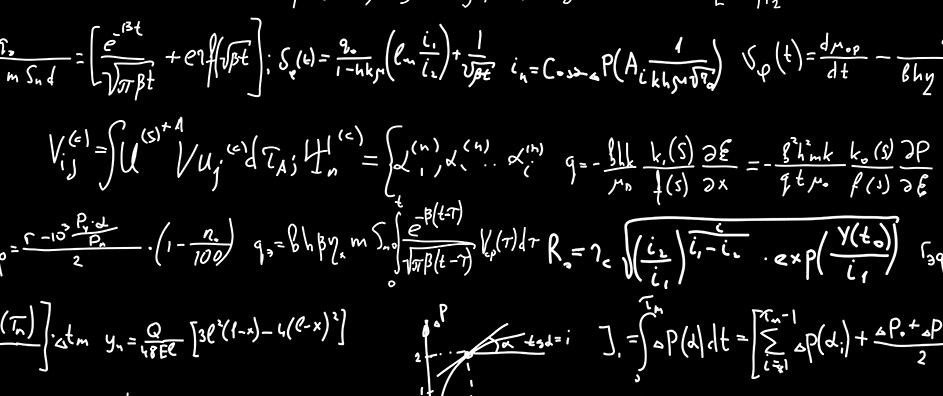The views expressed in our content reflect individual perspectives and do not represent the authoritative views of the Baha'i Faith.
The only physical theories we are willing to accept are the beautiful ones. – Albert Einstein
If there is a God, he’s a great mathematician. – Paul Dirac
The laws of nature are but the mathematical thoughts of God. – Euclid
When I am working on a problem I never think about beauty but when I have finished, if the solution is not beautiful, I know it is wrong. – Buckminster Fuller
We rejoice when, just as if it were a lucky chance favoring our aim, we do find such systematic unity among merely empirical laws. – Kant
I’m fascinated by math and science.
For me, even as an elementary school kid, I loved the new knowledge I discovered in science, and I thought math had a delightful purity and truth to it. The calculations and equations I learned, then the algebra and the geometry and the trigonometry, all seemed to have a spare, abstract beauty that somehow felt right. I especially liked my geometry classes, where I just somehow seemed to be able to look at those shapes and intuit the answers. I have no idea why.
 At the age of 10, my 5th grade teacher Mr. Heikel saw that I liked math. A math major in college, he took an interest in me, and challenged me to solve a few “advanced” math problems. I came up with the answers to some of them, but the others baffled me. My teacher just smiled, and then he gave me an article to read, called The Unreasonable Effectiveness of Mathematics in the Natural Sciences. Written by a Nobel Laureate named Eugene Wigner, I didn’t understand much of it—but I did perk up when the article said that “the enormous usefulness of mathematics in the natural sciences is something bordering on the mysterious.”
At the age of 10, my 5th grade teacher Mr. Heikel saw that I liked math. A math major in college, he took an interest in me, and challenged me to solve a few “advanced” math problems. I came up with the answers to some of them, but the others baffled me. My teacher just smiled, and then he gave me an article to read, called The Unreasonable Effectiveness of Mathematics in the Natural Sciences. Written by a Nobel Laureate named Eugene Wigner, I didn’t understand much of it—but I did perk up when the article said that “the enormous usefulness of mathematics in the natural sciences is something bordering on the mysterious.”
Wigner made me wonder: How could math be mysterious? I mean, two and two makes four, right?
My teacher explained what Wigner meant—that the natural world had a very close and an almost unexplainable connection to the theoretical world of math, and that connection said something profound about creation. Perhaps, Mr. Heikel told me, that made God a mathematician.
If the whole universe operates on a fixed and refined set of scientific and mathematical laws, I thought, it makes sense that those laws came from somewhere.
It turns out that’s what many scientists and mathematicians think, too. In the extremely sophisticated disciplines of higher math, physics and quantum theory, the most elegant and beautiful theories turn out to be the truest ones. This reveals, philosophers have reasoned, the existence of a greater beauty and truth in the creation itself. I suppose you could call this a scientific proof of God.
Some scientists say they get the same soul-satisfying thrill from the simplicity and beauty of a theorem or a set of numbers that others find in music, art, film or great literature. From that perspective, the aesthetic experience inherent in science and math can give us a recognition of the underlying beauty, harmony and coherence of the creation itself, and link the human spirit to the profound and the mystical:
Spirit in the human world is the discoverer of the realities of existence. All the inventions, all the sciences, all the hidden mysteries are brought to light through the activity of the spirit on the plane of life. While living in the Orient it organizes affairs in the Occident; while living on the earth it discovers the heavenly constellations. These examples ought to show you that the spirit of life is omnipotent, especially when it establishes a communication with God and becomes the recipient of the eternal light–then it transforms itself into a ray of the effulgence of the eternal sun. – Abdu’l-Baha, Divine Philosophy, p. 165.
The most learned and accomplished divines, the most distinguished scholars, have diligently studied those branches of knowledge the root and origin of which were the Greek philosophers such as Aristotle and the rest, and have regarded the acquisition from the Greek texts of sciences such as medicine, and branches of mathematics including algebra and arithmetic, as a most valuable achievement. – Abdu’l-Baha, The Secret of Divine Civilization, p. 30.
The spirit of man is a circumambient power that encompasseth the realities of all things. Whatsoever thou dost see about thee — wondrous products of human workmanship, inventions, discoveries and like evidences — each one of these was once a secret hidden away in the realm of the unknown. The human spirit laid that secret bare, and drew it forth from the unseen into the visible world. There is, for example, the power of steam, and photography and the phonograph, and wireless telegraphy, and advances in mathematics: each and every one of these was once a mystery, a closely guarded secret, yet the human spirit unravelled these secrets and brought them out of the invisible into the light of day. Thus is it clear that the human spirit is an all-encompassing power that exerteth its dominion over the inner essences of all created things, uncovering the well kept mysteries of the phenomenal world. – Abdu’l-Baha, Selections from the Writings of Abdu’l-Baha, pp. 169-170.
















Comments
Sign in or create an account
Continue with Googleor